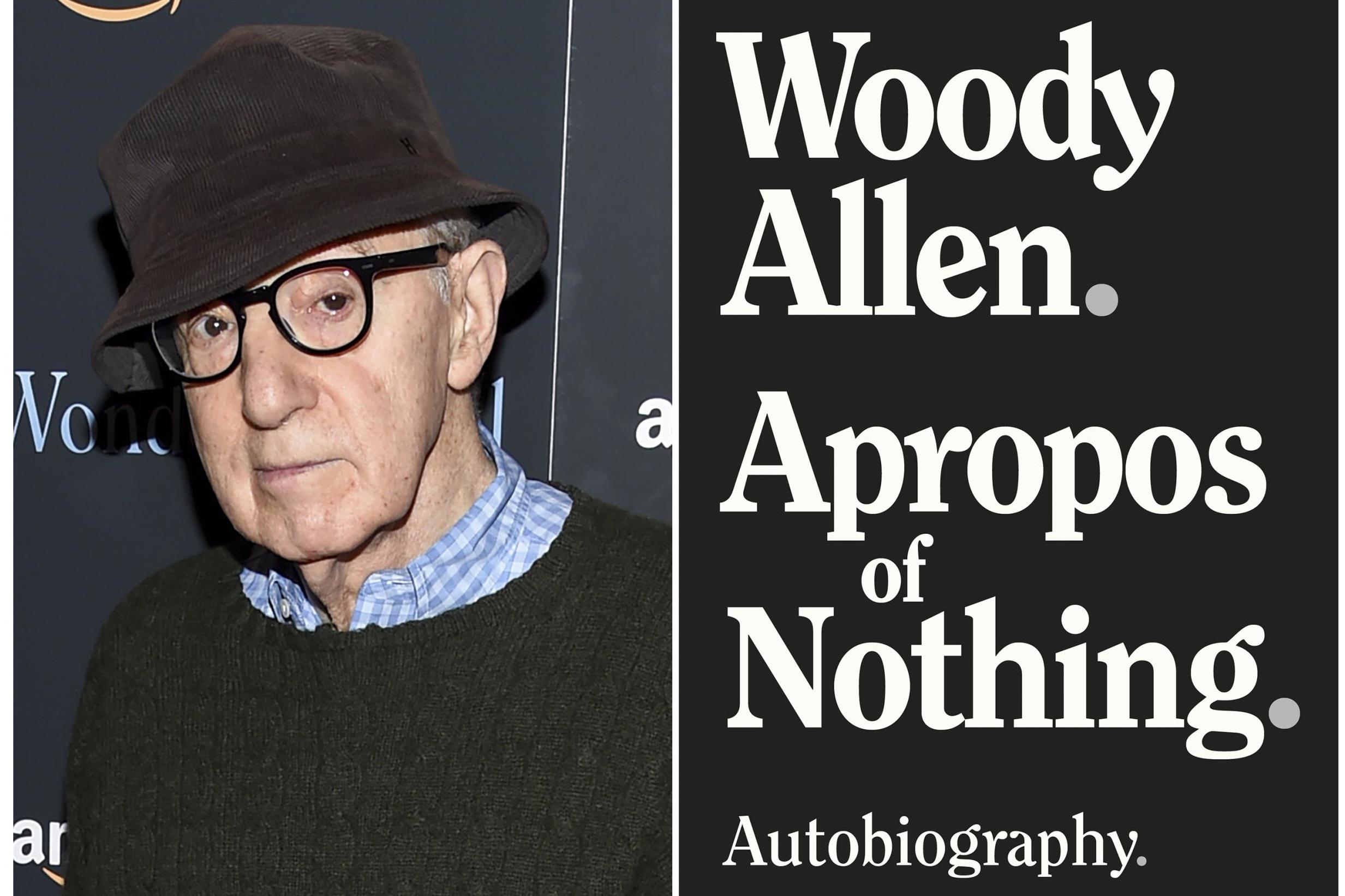Woody Allen’s memoir was published today, proving you can never muzzle powerful men
I’ve been accused of attempting to 'cancel' another famous man in the past — yet Liam Neeson, like Allen, bounced back just fine


Your support helps us to tell the story
This election is still a dead heat, according to most polls. In a fight with such wafer-thin margins, we need reporters on the ground talking to the people Trump and Harris are courting. Your support allows us to keep sending journalists to the story.
The Independent is trusted by 27 million Americans from across the entire political spectrum every month. Unlike many other quality news outlets, we choose not to lock you out of our reporting and analysis with paywalls. But quality journalism must still be paid for.
Help us keep bring these critical stories to light. Your support makes all the difference.
Many, many moons ago, Woody Allen’s memoir was dropped by its publisher. Well, it’s really been less than three weeks, but time has had a way of stretching out lately. It was back when the coronavirus pandemic was still an outbreak.
Apropos of Nothing, the memoir in question, was supposed to be released by Grand Central Publishing, a division of Hachette Book Group. But after widespread criticism centering on allegations that Allen sexually abused his daughter Dylan Farrow when she was a child, Hachette decided to cancel the release.
Allen has denied the allegations against him. Farrow has stood by her claims and found renewed public support in the #MeToo movement. Famous actors, from Colin Firth to Rachel Brosnahan, have either pledged not to work with Allen again or expressed regrets over past collaborations. Some, such as Rebecca Hall and Timothée Chalamet, donated the money they earned while working on Allen’s film A Rainy Day in New York to charity.
Hachette’s cancellation of Allen’s memoir followed an employee walkout as well as separate statements from Dylan Farrow and her brother Ronan. The latter was incensed in part because his own book Catch and Kill, about the Harvey Weinstein scandal, was published by another Hachette imprint (Little, Brown, and Company). Still, the decision to drop Allen’s memoir led to much hand-wringing from some who saw the move as an odious example of cancel culture – and an ominous forecast of more censorship to come.
Among them was the author Stephen King, who tweeted: “The Hachette decision to drop the Woody Allen book makes me very uneasy. It’s not him; I don’t give a damn about Mr Allen. It’s who gets muzzled next that worries me.”
This is a conversation we’ve had before, of course. Just over the past year or so, we’ve had to decide whether or not to keep listening to Michael Jackson in a post-Leaving-Neverland era, while my home country of France tripped over itself trying to decide which place Roman Polanski’s movies should occupy in our public discourse. (Polanski won the best director award at the Césars, France’s equivalent of the Oscars, last month. A number of women walked out.)
Fears that powerful men will get “muzzled” or “cancelled” have always baffled me, because they, by and large, simply do not align with reality. Polanski pleaded guilty to unlawful sexual intercourse with a minor in 1977 before fleeing the US, where he was facing the charges, on the eve of sentencing. Feminist demonstrators who protested outside the Césars ceremony were accused of attempting to silence him and erase his work from our collective consciousness even as he won the biggest award a director could possibly dream of collecting in France.
(By the way, even if Polanski hadn’t received such a prize, this wouldn’t have equated him being “cancelled”. Censorship and simply being passed on for prestigious awards are two very different things.)
But back to Allen. Anyone with a modicum of common sense could have predicted that Allen would find another home for his book. This has, of course, happened, and today, Apropos of Nothing was released by Arcade Publishing in the US.
I’ve been accused of attempting to “cancel” another famous man in the past. It’s been a bit more than a year since Liam Neeson, during an interview, told me he had once walked the streets with a cosh, ready to kill a “black bastard” in response to the rape of a friend.
After the interview, people wanted to know: should Neeson be cancelled? Should he never work again? It quickly became apparent that people had grand ideas about the extent to which well-liked men are held accountable for their words and actions. Neeson is fine, by the way. He appeared on Good Morning America last month to promote his new movie Ordinary Love with Lesley Manville. A few days later, he was on Watch What Happens Live with Andy Cohen, where he was asked whether Charlize Theron “actually shoved a flower in [his] ass in A Million Ways to Die in the West”.
You can’t muzzle powerful men. Whether you decide that’s a good thing or a bad thing is entirely up to you. But please, next time one of them is accused of doing and/or saying terrible things, spare me the hand-wringing.
Powerful men will be fine. They almost always are.
Join our commenting forum
Join thought-provoking conversations, follow other Independent readers and see their replies
Comments